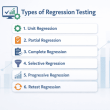Social media has transformed the way we consume news and interact with each other. However, this digital age comes with a downside that can’t be ignored: fake news and echo chambers. The spread of misinformation and biased information on social media platforms is having negative impacts on society. In this blog post, we’ll explore what fake news is, the dangers it poses to our communities, and how echo chambers contribute to its spread. We’ll also discuss ways to avoid these pitfalls so that you can stay informed without falling victim to false narratives or closed-mindedness. So sit back, grab your favorite drink, and let’s dive into this important topic together!
What is Fake News?
Fake news refers to false or misleading information that is presented as if it were true. Misinformation can spread rapidly on social media platforms, often with devastating consequences. Some fake news stories are purely fabricated while others may contain a kernel of truth but have been distorted or taken out of context.
Fake news stories often play into people’s fears and prejudices, making them more likely to be shared without being fact-checked or critically evaluated. In some cases, fake news stories may be deliberately created for political gain or to promote certain viewpoints.
One of the biggest problems with fake news is that it can erode trust in legitimate sources of information such as mainstream media outlets and government agencies. This undermines our ability to make informed decisions as citizens and contributes to an increasingly polarized society.
It’s important to question the source and credibility of any information you come across online before sharing it with others. Fact-checking websites like Snopes.com can help you identify whether a story has been debunked or verified by multiple sources. By staying vigilant against misinformation, we can all do our part in combating the spread of fake news on social media platforms.
The Negative Impacts of Fake News
Fake news is a term that has become increasingly popular in recent years, referring to false information that is presented as if it were true. The negative impacts of fake news are numerous and far-reaching, affecting individuals, organizations, and even entire societies.
One of the most significant negative impacts of fake news is its ability to undermine trust in traditional media sources. When people are bombarded with false information on social media platforms or other online channels, they may begin to doubt the accuracy and reliability of mainstream news outlets.
Fake news can also have serious consequences for public health and safety. For instance, during the COVID-19 pandemic, misinformation about potential cures or preventative measures could lead people to take dangerous actions or ignore important guidelines from healthcare professionals.
Furthermore, fake news can exacerbate existing societal divisions by spreading rumors or falsehoods about certain groups or individuals. In turn, this can fuel prejudice and discrimination based on race, religion, gender identity or political affiliation.
Overall,the negative impacts of fake news cannot be overstated – from threatening public health and safety to eroding trust in traditional media sources while intensifying social division through inaccurate reporting that perpetuates harmful stereotypes.
To combat this issue,it’s essential we learn how to identify reliable sources while verifying any claims before sharing them further with others.
Echo Chambers on Social Media
Echo chambers on social media are a phenomenon that has been gaining attention in recent years. Essentially, an echo chamber is a situation where people only interact with others who share their same beliefs and opinions. This can be particularly problematic when it comes to social media, because the algorithms used by these platforms tend to show users content that validates their existing beliefs.
When you’re only exposed to information that reinforces your existing views, it becomes easy to fall into the trap of confirmation bias. You start believing that everyone thinks like you do, and anyone who disagrees must be wrong or misguided.
This can create a dangerous situation where individuals become more extreme in their views, as they’re not being challenged or exposed to alternative perspectives. They may also become less tolerant of opposing viewpoints and dismissive of those who hold different beliefs.
Another problem with echo chambers is that they limit our ability to have productive conversations and find common ground with people from different backgrounds or experiences. When we only hear from people who think like us, we miss out on important insights and perspectives that could broaden our understanding of complex issues.
So what can be done about echo chambers? One solution might be for social media companies to adjust how they deliver content so users are exposed to a wider range of viewpoints. Additionally, individuals should make an effort to seek out diverse sources of information and engage in civil discourse with those whose views differ from their own. By breaking down barriers between groups online, we can work towards building stronger communities both on- and offline.
The Negative Side of Social Media’s Influence on Society
Social media has undoubtedly revolutionized the way we communicate and connect with others. However, its negative impact on society cannot be ignored either. One of the biggest drawbacks is that social media can lead to increased feelings of isolation and loneliness among users. Spending hours scrolling through feeds instead of interacting face-to-face with others can have a detrimental effect on mental health.
Another negative aspect is that social media platforms have given rise to cyberbullying, which can target individuals from all age groups. The anonymity provided by social media makes it easier for people to spread hate speech or engage in online harassment without facing consequences. This trend not only affects an individual’s self-esteem but also leads to depression and anxiety.
Social media has also become a breeding ground for fake news, propaganda, and conspiracy theories. The echo chambers created by these networks reinforce existing biases and allow misinformation to flourish unchecked. As a result, many people are misled into believing false claims or manipulated into taking extreme stances based on misleading information they find online.
Moreover, social media usage has been linked to decreased productivity levels as well as addiction-like behavior patterns among users who feel compelled to constantly check their accounts throughout the day.
While there are undoubtedly positive aspects of social media use such as easy connectivity and accessibility; it’s crucial for individuals using social networking sites regularly should take steps towards avoiding potential pitfalls associated with these platforms so that they don’t fall prey too quickly without understanding how it may impact them in long run!
How to Avoid Fake News and Echo Chambers
Now that we understand the negative impacts of fake news and echo chambers, it’s essential to learn how to avoid falling into these traps.
The first step is to be skeptical. Before sharing or believing any news, make sure you fact-check the information with reliable sources. Be cautious of sensational headlines and stories that seem too good (or bad) to be true.
Another way is to diversify your social media feed by following accounts with different perspectives from yours. This approach will expose you to a broader range of opinions and help you develop critical thinking skills when processing new information.
It’s also crucial not to rely solely on social media for news consumption. There are many credible news sources available online that offer unbiased reporting on current events.
Don’t forget about offline interactions such as reading books, attending lectures, or speaking with people outside your usual circle. These activities can provide valuable insight into various viewpoints while reducing the risk of being trapped in an echo chamber.
Avoiding fake news and echo chambers requires effort and mindfulness but can lead us towards a more informed society where individuals can approach complex issues critically without relying on our biases or preconceived notions alone.
Conclusion
Social media has become an integral part of our daily lives, but it’s important to recognize its negative effects. The rise of fake news and echo chambers on social media is a dangerous trend that can have serious consequences for society as a whole.
Fake news spreads misinformation and can lead to misguided decisions being made based on false information. Echo chambers reinforce existing beliefs and prevent people from considering other viewpoints, leading to division and polarization among different groups.
However, there are ways we can combat the negative effects of social media. By fact-checking before sharing or believing information, diversifying our sources of news, and engaging in respectful conversations with those who hold differing opinions, we can work towards creating a more informed and open-minded society.
While social media has undoubtedly brought many positive changes to how we communicate and connect with each other, it’s crucial that we remain aware of its potential downsides. By taking responsibility for the content we consume and share online, we can help ensure that social media continues to be a force for good in our world.










